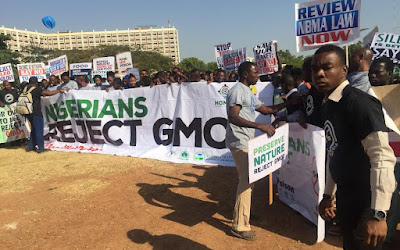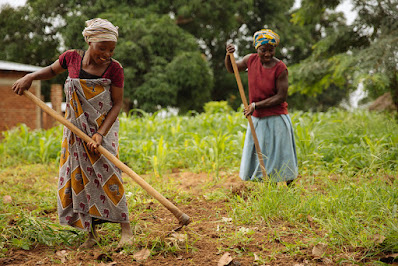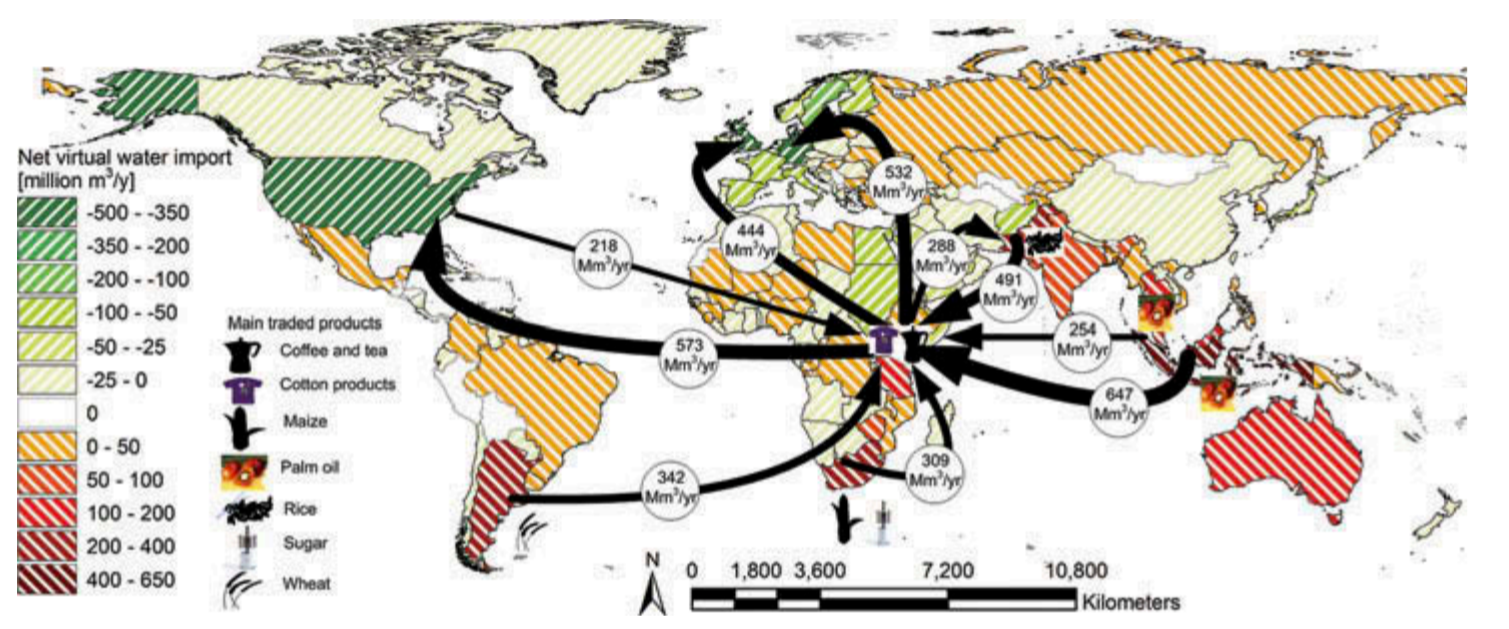GMOs: Changing the Crop Africans Grow
In the previous two posts, I addressed two solutions to Africa's water and food scarcity challenges: correcting unequal time distribution of water resources through storage systems and easing asymmetrical geographical distribution via virtual water trade. Both of these ideas stem from the desire to make better use of current water supplies – but what if we could address the problem by changing the crops we grow?
As an outcome of modern biotechnological development, Genetically Modified Organisms (GMOs) have always been burdened with both expectations and opprobrium. GMOs, according to the FAO, are species 'in which one or more genes have been introduced into its genetic material from another organism using recombinant DNA technology. This approach allows for the development of crop traits (such as disease resistance, lower water and nutrient input requirements, higher yield and nutrition and so on) that may adapt to a broader range of growing environments, hence addressing food security issues. In most African nations, GM crops have the potential to provide a suitable answer to increasing water and food insecurity, especially in the face of unclear future climatic circumstances.
Over 60% of Africa's population is directly or indirectly dependent on agriculture (Goedde et al., 2019), but Africa's food crop production is the lowest in the world (Thomson, 2015). Despite the urgent need to expand food production and the ability of GMOs to do so, Africa's precarious food security position is exacerbated by the scepticism of GMOs (Deressa et al., 2014). Early in 2006, African Union officially acknowledged that biotechnology can assist farmers to raise productivity in its 2003 decision (Gbashi,2021). Adoption and implementation, on the other hand, have been severely stymied, owing to divided policy perspectives throughout the continent's many nations and regions. The GMO market in Africa was anticipated to be worth USD 615.4 million in 2018 and is projected to only slightly expand about 5% by 2025 (Kedem, 2019).
As in any other region, safety consideration is one of the major challenges for African governments to accept and implement GMOs. Gene escape, gene migration, and allele flow are frequently cited as potential environmental hazards of GM crops. Despite the fact that scientific analyses have by far revealed no evidence that such genetic transactions pose a hazard to human health or the environment (Gbashi, 2021), such concerns have influenced the public acceptance of GM crops. In one research of 355 participants performed in Nigeria, 80% expressed worry about the prospective introduction of GM crops, with 65% perceived potential health problems (Oladipo et al., 2020).
The technological reliance on the foreign private sector is another big concern held by the opponent of GM crops. When reading through online postings regarding GMOs’ applicability in Africa, I spotted an interesting Guardian post headlined 'GM crops won't benefit African farmers'. This post concerned GM firms would make it illegal to preserve seed (like they did in South America) and thus draw the conclusion that GM crops would post great threats to African farmers' wealth. Similar arguments are often made by GM crop objectors. Luckily, I discovered one remark on this post to help hammer the nail on the spot - 'I disagree that GM won't help African farmers. It's this commercial model that won't help them.'
Despite these suspicions, a few African countries, such as South Africa and Sudan, have chosen to accept and benefit from GMOs. South Africa was one of the continent's early adopters of GM methods and started to apply GM maize in 1996 (Agaba, 2019). In 2017, it planted a total of 2.73 million hectares of transgenic maize, soybeans, and cotton. Between 2016 and 2017, Sudan's pest-resistant cotton planted area expanded by 50%. (Agaba, 2019). It is suggested that many other African countries are ahead of Sudan in biotech research, but their political leaders need to be more proactive when it comes to GM technologies.
Overall, proving GMOs are harmless to local ecology and human health requires much effort but suspecting it is a lot easier. However, fear and denial would never be able to stop the growth of GMO technology or the rise of water and food poverty in Africa. Embracing the results of GMO technology while actively creating national biosafety frameworks to address linked socioeconomic issues, in my opinion, would be a more constructive path for the continent's future. Changing the crops that Africans plant might be a powerful solution to address future water and food scarcity.



I thoroughly enjoyed how you provided a balanced argument of GMO crops throughout and I 100% agree with your conclusion. Although, GMO crops is a new technology, there is no doubt the amounting pressure of food and water scarcity will eventually cause us to implement GMO's.
回复删除Thank you for your comment :) You just perfectly sum up what I wanna say in this post! Also sometimes I feel like it's no use to ignore a new technology out of fear. Embracing it and trying to overcome its limitations should be a better way forward.
删除